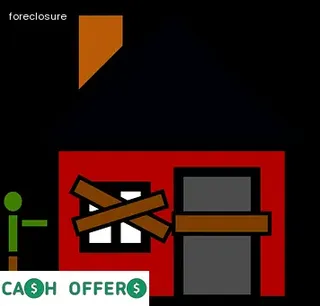Ohio homeowners in Homeowner Associations (HOA) and Condo Owner Associations (COA) must be aware of the consequences of failing to pay their dues on time. When a homeowner does not pay their dues, the HOA or COA can assess late fees, interest charges, and other administrative costs.
In addition, HOAs may file an assessment lien on the property to collect unpaid assessments. This includes any late fees or interest charges that are still unpaid.
These assessment liens will remain until all delinquent assessments are paid in full by the homeowner, including any additional legal fees accrued by the HOA or COA due to non-payment. In some cases, if these assessment liens remain unpaid for a lengthy period of time, foreclosure proceedings may ensue against the property owner.
As a result, homeowners must be aware of their responsibilities under Ohio law and take steps to ensure timely payment of their HOA/COA dues and assessments.

A lien is a legal claim on a property that allows an unpaid creditor to take ownership of the property if the debt is not paid. Homeowners' associations (HOAs) may place liens on properties for unpaid dues, and this can have serious financial and legal implications for the homeowner.
Depending on the state, the HOA may be legally permitted to foreclose on the home if the dues remain unpaid for a certain amount of time. The homeowner could also suffer damage to their credit score and face legal action through court proceedings.
Unpaid HOA dues can also result in late fees and additional interest charges, increasing the amount that must be paid back in order to release the lien. It is important for homeowners to understand their rights and responsibilities when it comes to HOAs, as well as how an unpaid HOA lien could affect them financially and legally.
When it comes to owning a home, one of the first things potential and current homeowners should consider is understanding what a mortgage and HOA/COA lien is. A mortgage lien is a legal claim made by a lender on property owned by a borrower, used as security for payment of the loan.
A homeowner association (HOA) or condominium owner association (COA) lien is an encumbrance on real estate created when the homeowner fails to pay assessments or dues owed to the HOA or COA. Furthermore, both liens must be paid in full when buying or refinancing property.
The consequences of unpaid HOA/COA dues can be severe for Ohio homeowners, including fines and fees imposed by their respective HOAs/COAs, foreclosure proceedings initiated against the property if all other attempts to collect have failed, and even personal liability from unpaid assessments if the homeowner sells their home prior to paying off their debts. It's important for Ohio homeowners to understand that these liens will remain in place until they are paid off in full - so it's best to stay up-to-date on all payments due.

When it comes to Homeowner's Associations (HOAs) and Condominium Owner's Associations (COAs), as an Ohio homeowner, you should be aware of the court rules pertaining to liens. Liens may be placed on your property if HOAs/COAs are not paid in a timely manner.
Generally speaking, this is when delinquent HOA/COA fees have gone unpaid for 90 or more days and other attempts to collect the dues have failed. The lien may include late fees, attorney fees, and collection costs in addition to the balance due.
Furthermore, a lien can affect a homeowner's credit score and remain on the property until the full amount of the unpaid dues is satisfied. It is important to note that while they serve a purpose, liens also give HOAs/COAs considerable power over homeowners who have fallen behind on their dues as they have the right to foreclose on a home if payment plans are not met.
In conclusion, understanding court rules pertaining to HOA/COA liens is essential for Ohio homeowners in order to ensure that their financial obligations are up-to-date and avoid any potential consequences associated with unpaid dues.
Many Ohio homeowners may be unaware that failure to pay dues to their Homeowners' Association (HOA) or Condominiums Owners' Associations (COAs) can have serious consequences. If a homeowner has unpaid dues, the HOA or COA may take legal action against them.
This includes filing a lien, taking the homeowner to court, and even foreclosing on their home. For this reason, it is important for homeowners to understand their rights and obligations related to HOAs and COAs, as well as common practice areas associated with them such as bylaws, deed restrictions, community rules and regulations, governing documents, association fees/dues, dispute resolution/mediation services and fines/penalties for noncompliance.
Understanding these practices can help avoid potential problems associated with unpaid HOA or COA dues in the future.

When it comes to unpaid Homeowners Association (HOA) or Condominium Owners Association (COA) dues, Ohio homeowners should be aware of the potential consequences. A lien is a legal claim to a property that allows the lienholder to take possession of it if the debt goes unpaid.
In some cases, this can mean foreclosure. It is important for Ohio homeowners to understand how the foreclosure process works in relation to HOA/COA liens.
Generally, the first action taken by the HOA/COA will be to send a demand letter reminding the homeowner of their obligations and giving them an opportunity to pay their dues. If payment is not received within a certain time frame, then further steps may be taken such as initiating legal action or filing for foreclosure on the property.
In such cases, homeowners would likely receive notice from the court of their rights and obligations along with information about how they can contest or settle any outstanding dues owed. By understanding these procedures, Ohio homeowners can avoid being caught off guard by an unexpected lien or foreclosure action due to unpaid HOA/COA dues.
When you purchase a home in an area with a Homeowners Association (HOA) or Condominium Owners Association (COA), it is important to understand the responsibilities and fees associated with membership. One of the primary costs of living in an area with an HOA or COA is the dues that are owed to the association.
These fees must be paid on time and in full, as failure to do so may result in serious consequences for Ohio homeowners. Depending on the type of property, these fees can range from minor repairs and maintenance costs to extensive assessments for large-scale projects such as repaving roads and constructing new amenities.
In addition to financial repercussions, failure to pay these fees can also lead to legal action from the association which may include liens placed against your property or foreclosure proceedings. It is crucial that Ohio homeowners understand their obligations related to HOA or COA fees and remain current on all payments due in order to avoid potential penalties.

When it comes to homeowners associations (HOAs), staying up-to-date on dues can be difficult, especially if financial hardship is involved. But if HOA dues remain unpaid, there can be serious consequences for Ohio homeowners.
Fortunately, negotiating with delinquent owners is a viable strategy for HOAs in the state of Ohio. It’s important that HOAs understand the options available to them when dealing with delinquent owners and are well-equipped to handle these situations.
Understanding the local laws and regulations governing HOA behavior can help ensure that negotiations are conducted appropriately and within legal boundaries. Additionally, having an effective communication strategy in place will help keep a positive relationship between the HOA and delinquent owner as negotiations progress.
Furthermore, taking into account the individual circumstances of each situation is key for finding the best solution for all parties involved. Ultimately, when done correctly, successful negotiation with delinquent owners can help avoid further legal issues while still ensuring that HOA dues are paid in full.
When it comes to homeowners associations (HOA), one of the most important aspects for Ohio homeowners is understanding how HOA fees are calculated and structured. This information is crucial to helping ensure that homeowners are aware of their responsibilities in paying dues on time and the consequences of not doing so.
Knowing the structure behind these fees can also help prepare homeowners financially if they find themselves unable to pay them in the future. For instance, a common structure for HOAs includes an annual fee that can be paid up front or divided into equal installments throughout the year.
Additionally, some HOAs may include additional fees such as special assessments, which can be used to cover costs like landscaping or repairs. Homeowners should familiarize themselves with their HOA’s rules and regulations as well, as failure to comply could result in fines or other penalties related to unpaid dues.
Understanding how HOA fees are structured and knowing what specific fees apply to their community will help Ohio homeowners plan ahead and avoid costly consequences associated with unpaid dues.

When homeowners in Ohio fail to pay their Home Owners Association (HOA) dues, the unpaid assessments can have serious legal consequences. Legally, HOAs have the right to collect unpaid assessments from members and can utilize a variety of options to do so.
These options may include placing a lien on the property, filing a lawsuit against the homeowner, charging late fees and interest on overdue payments, or hiring a collection agency to pursue payment. In some cases, the HOA may even be able to foreclose on the property if the homeowner fails to respond to collection efforts.
It is important for Ohio homeowners to understand their rights and responsibilities when it comes to HOA dues in order to avoid these serious legal consequences. Taking proactive steps such as setting up an automatic payment plan or establishing clear communication with the HOA can help ensure that assessments are paid in full and on time each month.
Ohio homeowners must be aware of the consequences they could face if they don't pay their Homeowner Association (HOA) dues. In Ohio, delinquent HOA dues are taken very seriously and there are a number of legal implications that should be considered.
For starters, homeowners who fail to pay their dues can be subject to late fees, liens on the property, suspension of voting rights within the association, and even foreclosure proceedings. Depending on the severity of the delinquency, a homeowner’s credit may also be affected, as unpaid dues will appear as a debt to any potential lenders.
Furthermore, HOAs in Ohio have the right to take legal action in order to collect overdue payments. This could result in a court-ordered judgment or garnishment of wages.
Ultimately, it is important for Ohio homeowners to understand how serious these consequences can be and make sure that their HOA dues are paid on time in order to avoid any unnecessary financial burdens or legal issues.

When a homeowner fails to pay their Homeowners Association (HOA) dues, the consequences can be serious. In Ohio, the HOA can impose late fees and suspend certain privileges, such as access to shared amenities like swimming pools or fitness centers.
If an owner continues to refuse payment, the HOA can place a lien on the property. This means that if the owner ever attempts to sell their property or refinance their mortgage, they will have to pay off any unpaid dues and associated fees before they receive any proceeds from the sale.
In extreme circumstances, an HOA may even foreclose on a home if too much is owed. Therefore, it is important for Ohio homeowners to stay current with their HOA assessments in order to avoid costly consequences.
Ohio homeowners should be aware of the consequences that come with unpaid Homeowners Association (HOA) dues. When HOA fees are not paid, homeowners can face serious financial repercussions that can affect their equity in their home.
Unpaid assessments can result in late fees and interest charges, creating an escalating balance that is owed on the homeowner’s property. The homeowner may also be subject to foreclosure actions by the HOA if the assessments remain unpaid for a certain period of time.
In addition to these potential charges, the homeowner’s credit score could suffer from an unpaid debt, resulting in difficulty obtaining future loans or mortgages. All of these complications can reduce a homeowner’s ability to build equity in their home and cause long-term financial distress.
It is crucial for Ohio homeowners to stay up-to-date on their HOA dues and obligations in order to avoid these potential pitfalls.

Ohio Homeowners Association (HOA) dues are an important part of homeownership. Unpaid dues can lead to serious consequences and it is important to understand the penalty structure for unpaid assessments in Ohio.
If you are a homeowner who fails to pay their HOA dues, your HOA may place a lien on your property. This means that if you sell or refinance your home, you will be required to pay the outstanding balance before closing.
Additionally, in some cases, failure to pay HOA dues can lead to foreclosure proceedings. Further, unpaid assessments may also lead to late fees and additional fines which can add up quickly and become unmanageable.
Finally, it is important to note that depending on your local regulations, HOAs may even have the right to take legal action against homeowners who fail to meet payment deadlines. It is critical for Ohio homeowners to stay aware of their assessment obligations so they can avoid potentially serious financial repercussions due to unpaid HOA dues.
When it comes to homeowners living in a community managed by a Homeowners Association (HOA), unpaid dues can lead to a dispute between the homeowner and the HOA. Fortunately, there are solutions available for resolving such disputes.
Mediation or arbitration can be used to settle any disagreement regarding unpaid assessments. By engaging in mediation, both parties will have an opportunity to voice their opinions in an attempt to reach a common agreement without legal intervention.
On the other hand, arbitration is when an unbiased third party is brought in to act as a judge and make a final decision on the matter. This process is often less expensive and less time consuming than initiating a lawsuit in court.
In either case, homeowners should be aware of the potential consequences that come with not paying HOAs properly and on time, as well as of these two possible solutions for settling any disputes that may arise from them.

Ohio homeowners must be aware of the potential tax implications if they have unpaid Homeowner's Association (HOA) dues. The consequences of not meeting one's financial obligations to an HOA can have serious long-term repercussions.
For example, in Ohio, delinquent assessments can result in a lien being placed on a property and, depending on local laws, may even lead to foreclosure proceedings. Furthermore, communities that are managed by HOAs are subject to certain levies and taxes imposed by the municipality or state.
If assessments remain unpaid for an extended period of time, they may also be assessed as part of the tax bill on the homeowner’s property. As such, it is important for Ohio homeowners to stay on top of their HOA dues and avoid any potentially severe tax consequences due to delinquency.
Ohio homeowners with unpaid Homeowners Association (HOA) dues should be aware of the consequences of not paying these fees. Foreclosure is a possibility if dues are left unpaid for too long, which can cause major damage to a person's credit score and financial standing.
However, there are alternatives to paying off those unpaid assessments that may help homeowners avoid foreclosure. One alternative is to contact the HOA directly and negotiate a payment plan that works for both parties.
A payment plan allows homeowners to pay their overdue amount in installments rather than one lump sum. Another option is for the homeowner to consider a loan modification or refinance their mortgage altogether.
Loan modifications can lower monthly payments and make it easier for the homeowner to pay off their dues over time while refinancing helps homeowners secure a more favorable mortgage rate on their home loan. Although these options may require additional work, they can help Ohio homeowners facing foreclosure due to overdue HOA dues find relief from this burden and protect their homes in the process.
In Ohio, when a homeowner fails to pay their Homeowners Association (HOA) dues, the HOA has the legal right to foreclose on the home in an effort to recover the unpaid dues. When this happens, it is important for Ohio homeowners to understand who is responsible for HOA dues after foreclosure.
According to the Ohio Revised Code, the responsibility of any unpaid HOA dues falls upon the lender in the event of a foreclosure. The lender is responsible for paying off all outstanding HOA dues until they have been fully satisfied.
This means that if a homeowner fails to pay their HOA dues and subsequently loses their home through foreclosure, they will not be responsible for any remaining balance on those dues. However, lenders may try to recoup these costs by charging additional fees or increasing interest rates when extending loans in the future.
It is important for Ohio homeowners to research and understand their rights and responsibilities before entering into any agreement with an HOA or lender.

Unfortunately, the answer isn't simple when it comes to getting rid of an HOA in Ohio. Homeowners Association (HOA) dues are mandatory for homeowners in a community that has an HOA.
Failing to pay these dues can have serious consequences, including fines, loss of privileges within the community, and even foreclosure. Therefore, understanding what is required of you as a homeowner when it comes to HOA fees is essential before making any decisions about getting rid of an HOA.
Before taking any drastic steps like trying to dissolve your HOA, be sure you understand the local laws governing HOAs and consult with a lawyer or other professional who specializes in this area.
In Ohio, Homeowners' Associations (HOAs) have significant power when it comes to unpaid dues. If a homeowner does not pay their HOA dues in full and on time, the HOA can take legal action.
Such actions may include levying fines and/or issuing liens against the property. Additionally, HOAs may also suspend certain privileges such as access to recreational facilities until all past due amounts are paid in full.
Ultimately, the HOA has the authority to foreclose on a home if necessary, so Ohio homeowners should be aware of the consequences of not paying their dues on time.
In Ohio, Homeowner’s Associations (HOAs) are governed by state and federal laws. The regulations that govern HOAs in Ohio are outlined in the Ohio Revised Code (ORC).
It is important for homeowners to be aware of these rules as failure to comply with them can lead to serious consequences. In particular, unpaid HOA dues can result in a lien being placed on the property, foreclosure proceedings, and/or legal action initiated against the homeowner.
A homeowner's rights and responsibilities should always be carefully reviewed when purchasing a home within an HOA community so they are aware of their obligations. Additionally, it is important for homeowners to keep abreast of any changes in HOA regulations or fees so they do not inadvertently fall behind on their payments.
Ultimately, understanding and adhering to all applicable laws governing HOAs in Ohio will help ensure a positive experience living within an HOA community.
A: If a homeowner fails to pay the required HOA dues and it results in a foreclosure sale or judicial foreclosure, the lender may cancel any existing homeowners insurance policy and deduct the cost of any new premiums from the proceeds of the sale, which are paid into the lender's bank account.
A: If delinquent HOA dues in Ohio result in a foreclosure sale or judicial foreclosure, the homeowner may lose their real property and their homeowners insurance policy may be cancelled. A paralegal should be consulted to discuss the specific details of the situation.
A: If delinquent HOA dues in Ohio result in a first lien foreclosure sale or judicial foreclosure, the Mortgagor has the opportunity to reclaim their property by paying off the outstanding loan balance plus all associated costs and fees. Additionally, they will need to reinstate any insurance policies that may have lapsed due to nonpayment of premiums.